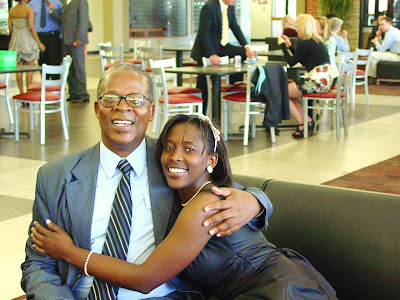 |
| Sophia, Caleb, Ethan, Ruth, and Timothy Jenkins |
For missionary families these
concerns are very prevalent. Will
taking our children overseas for years have lasting negative effects? (However, much research shows just the opposite.)
Yet, another fear is what if my
children suffer in a way I can only imagine?
And what if they suffer due to misunderstanding and prejudice? Yet in their suffering can they find a way
to preserve their dignity?
I have five different children with
two basic skin colors - what the world calls black and white.
A few times my children with black
skin have been the subjects of prejudice when I was not near them. They would keep the offense inside them for
years, and only much later share the pain.
I would be enraged, but time and physical distance made addressing the
offense impossible.
Yet there are even more subtle
forms of prejudice that all my children face.
God in His infinite wisdom spoke against this more subtle but just as
destructive form of prejudice. This is
the prejudice of group think against those who seem to have more economic
resources (Exodus 23:2, 3; Leviticus 19:14.)
The marketing photos of poor
African children by nonprofit organizations strip many of their dignity. They strip the poor of their dignity
because it subtly communicates perpetual victimhood. They also strip the middle class of their
dignity because these photos subtly label Africa’s middle class as exploiters
of the poor. Lastly, I’ve seen these
marketing tools strip missionary kids of their dignity by subtly telling
missionary kids they don’t matter.
I disagree with these prejudices.
Allow me to tell several
stories. My family are “faith
missionaries” which means we have no guaranteed salary. We live on the free will donations of
churches, friends, and family. We trust
God for our daily bread. We’ve seen
God do the miraculous. Yet, we’ve also
seen why in the Old Testament law the Year of Jubilee was instituted (Leviticus
25.) Sometimes God’s people don’t
display the mercy and justice of God. The community suffers until the out of the
ordinary happens.
We ministered for 19 years in nations
that some would define as the
economically poorest countries of the world.
While at times we’ve been struggling to pay our bills we’ve ran scholarship
programs for vulnerable children.
A multiple of times when my
children were too young to understand what was happening I would be on furlough
speaking in a local church. Someone
would ask about our kid’s education.
I’d explain the choices we were making and the costs of educating
missionary children. Another would ask
a question about our sponsorship programs.
I would hope that donations would be given to both. Instead, people would say, “We want our
donation designated for the sponsorship program. You will have to look somewhere else for
your needs.” Then they would write a
designated check. I would drive away from
the meeting with checks, but not enough flexibility in the donations to pay for
my travel expenses.
 |
| Sophia and Doreen Rwigamba at Rugezi Wetland, Rwanda |
A wealthy donor began to ask
critical questions. We attempted to
answer. His tone moved from critical to
a recycling of the issues God addressed in Exodus 23:2, 3; and Leviticus
19:14. He used sophisticated language,
but he was encouraging group think against Africa’s middle class and missionary
kids. His arguments focused on what
percentage of the gifts went to the poorest of the poor, and that he did not
want to see his gifts go to “administrative fees, nor expatriate life
styles.” My blood boiled. I doubt his children ever suffered with
malaria. I doubt his children were ever
bit by dogs or monkeys. I doubt he ever
carried his children on his shoulders and ran away from gunfire. Sophia cried. Then Sophia spoke.
 |
| Joseph, Mary, and Jesus going in refuge in Egypt |
She said, “Yes, I go to school with
missionary kids and Rwandan middle class kids.
The Rwandan kids sleep in homes with running water and electricity. Their parents drive cars. They look wealthy. What you don’t know is their parents grew up
in refugee camps. Then they in their
own words, “Got lucky.” They received
an education. They developed
professional skill. Rwanda became
peaceful. They came home. Their parents work very long hours. An entire nation’s future rides on their
shoulders. They did not have to come
home. In fact, many complain about
brain drain. If you want to stop brain
drain don’t argue with the middle class.
Their kids need a good school.
Should that school not be one where the class sizes are small? Should that school not be one where God is
honored? Why do we want schools like
this in America, but argue against them in Africa?”
She hit the nail on the head. The donor was conditioned by photos of the
poor to be prejudiced. The prejudice
was more subtle than simply race. It
was the prejudice against professional skill and an economic class.
 |
| Alexis and Grace Hixson, Ruth, Imfra Mwunvaneza, and Kassidy and Natalie Shreck |
So this Christmas season as you
prepare to make a year end gift I request that you look at the options, and
simply say, “Missionary kids matter.”














